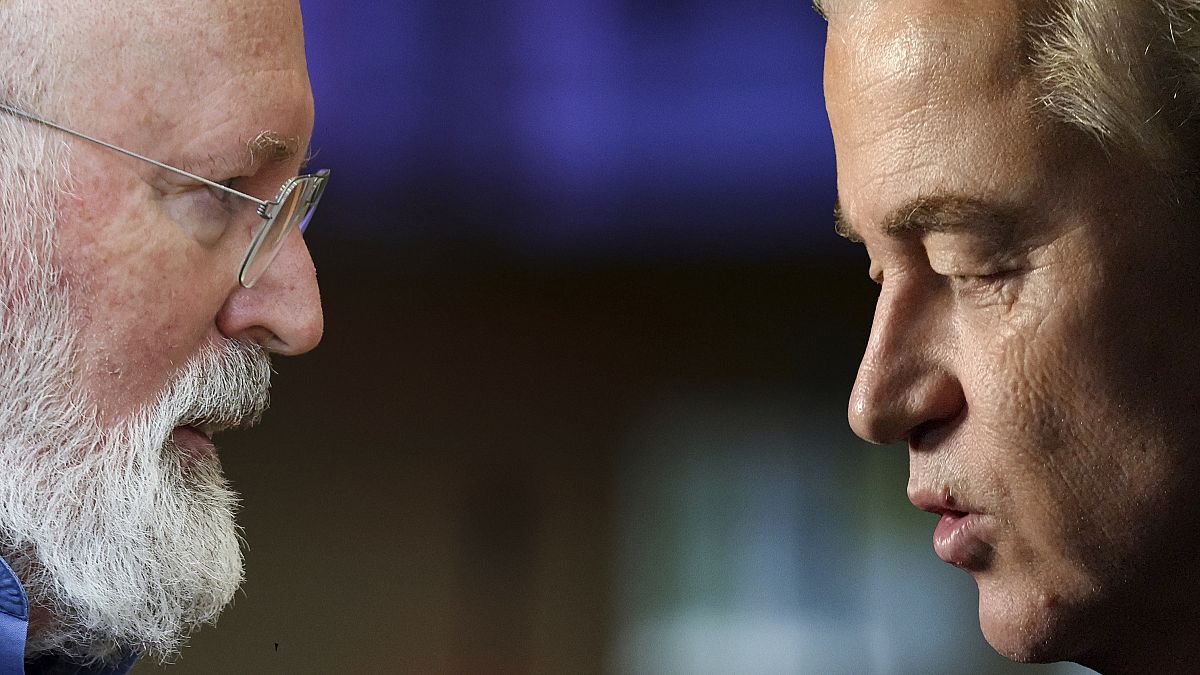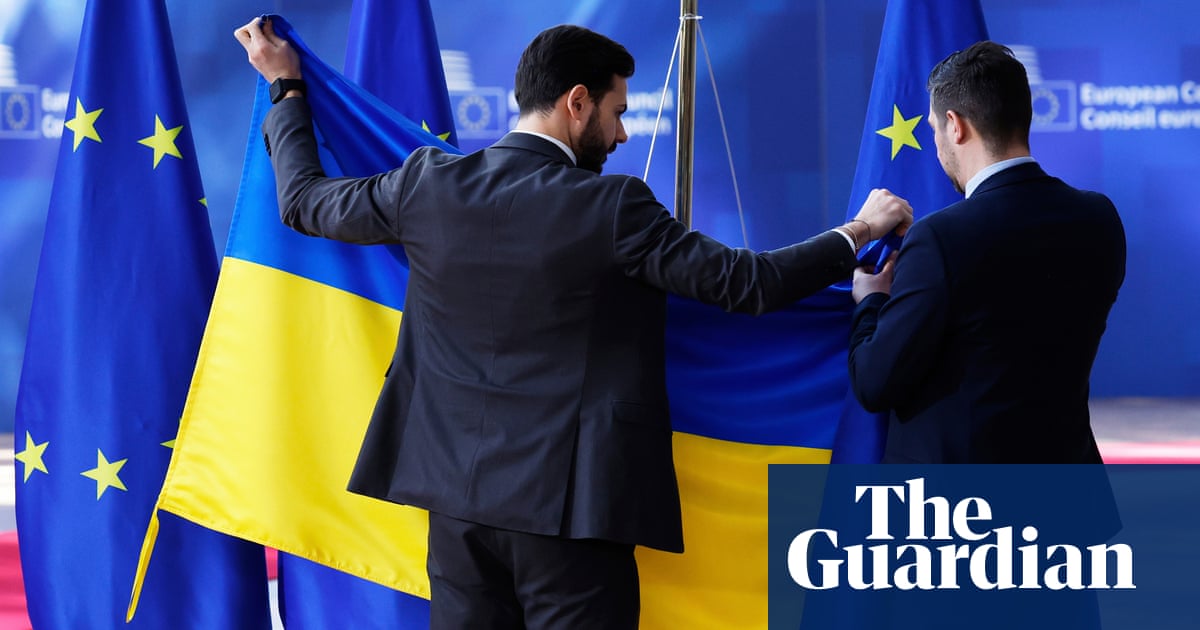Timmermans and Wilders both celebrate on Dutch election night

Timmermans’ GreenLeft-Labour alliance is set to win eight seats in the new European Parliament, while PVV and its leader Geert Wilders won seven.
Gasps of shock and cheers of joy rippled through the packed hall where members of the GreenLeft-Labour bloc had gathered to watch the exit poll results, which suggested that the green-socialist list would win eight out of the 31 seats the Netherlands gets in the European Parliament.
Even louder cheers were heard when news came out that the radical right Freedom and Democracy Party is set to win seven seats and that Pro-European parties are expected to have picked up two-thirds of the votes.
“Pro-European parties in the Netherlands did very well in this election, which sends a clear signal to the rest of Europe that there is no necessity to work with the radical right, former First Vice President of the European Commission Frans Timmermans told Euronews.
The assumption that the radical right would sweep this election has not materialized in the Netherlands,” he added.
Timmermans currently leads the GreenLeft-Labour alliance.
The GreenLeft-Labour combination ran on a joint list for the first time in European elections but will split up once it gets to Brussels. In the European Parliament, Labour is part of the Socialists and Democrats group, and the GreenLeft is part of the Greens.
Wilders wants to change the world
Geert Wilders’ far-right Party for Freedom and Democracy did not throw a party despite the result. Wilders is still projected to win seven seats, a hefty increase from five years ago when the party won only a single seat.
During the party’s single campaign event on Wednesday, Wilders was mobbed by the press and his supporters.
“I’m not washing this hand till December,” said a man who shook Wilders’ hand.
Wilders was hoping to ride a wave of support for the Dutch coalition he has managed to put together after winning big in national elections here in November. He sees the rise of the right as part of a bigger trend.
“The West is waking up, and you see parties like mine growing in popularity all over the European Union. The people are waking up, and I hope they stay awake,” Wilders told Euronews.
“The next few days are crucial for the future of Europe. Will it be with more borders and immigration, or will it be a lot tougher with not an expansion of the European Union but returning legislative powers to the capitals? And that is something we are aiming for.”
Off to the side stood Sebastian Stoteler, the man who would actually be going to Brussels for the PVV. Stoteler only has a couple of media appearances under his belt, so he remains largely unknown. On his website, he calls Islam a totalitarian ideology similar to fascism and Nazism.
Far right to huddle once in Brussels
The radical right party had previously always advocated for a withdrawal from the EU, a so-called Nexit, but changed course this year.
Wilders now says he wants to change Europe from within — he hopes his MEPs will join the Identity and Democracy group in Parliament, also home to Marine le Pen’s Rassemblement National.
“If you want to change the big institutions like the European Union, it is more effective if you do it from the inside,” he told journalists while campaigning on Wednesday.
“So if parties like mine, who it looks like they will be winning all over Europe — from Austria, France and Belgium to Italy and Spain and other countries — if we would join forces and perhaps form a big group of MEPs, we will be able and strong enough to change the European policy from within.”
Turnout was the highest since 1989, with 47% of voters going to the polls. In 2019, the turnout was 42%.
Related
Zelenskyy reiterates call for air truce after huge Russian attack…
We need Russia to stop attacks, Zelenskyy says, backing calls for truce in air, at seaUkrainian president Volodymyr Zelenskyy has responded to overnight attacks
Europe scrambles to rearm as Trump threatens security guarantees and…
CNN — European leaders have vowed to rearm the continent at historic emergency talks h
Russia launches ‘massive’ attack on Ukraine after Europe rushes to…
Ukraine's energy and gas infrastructure came "under massive missile and drone shelling" by Russia on Friday, a Ukrainian minister said."The energy and gas infra
American severance may be averted, but Europe’s leaders must fear…
With a mixture of regret, laced with incredulity, European leaders gathered in Brussels to marshal their forces for a power struggle not with Russia, but with t












